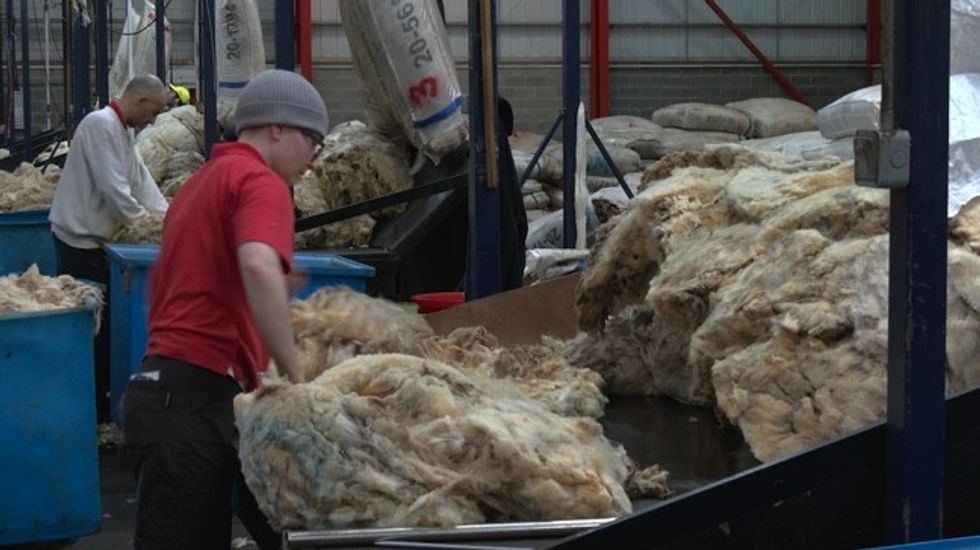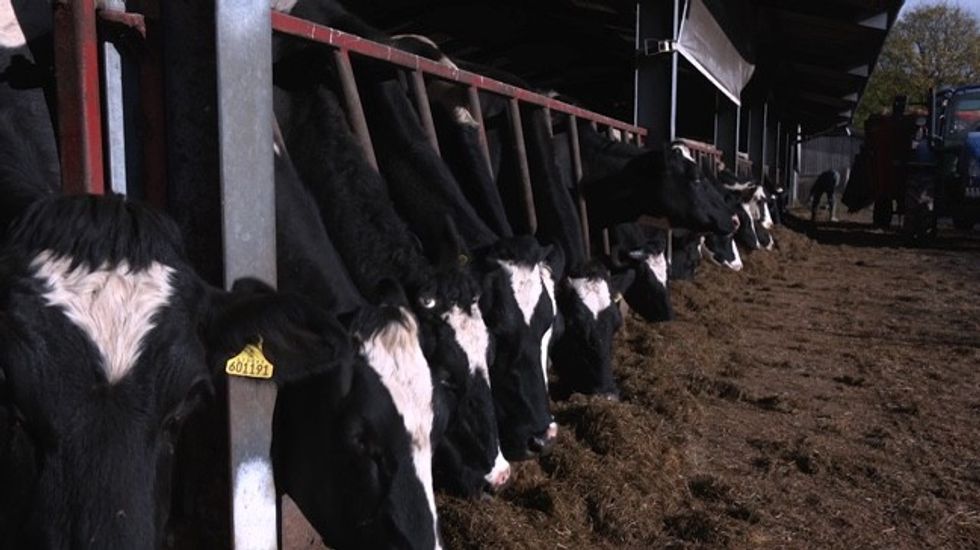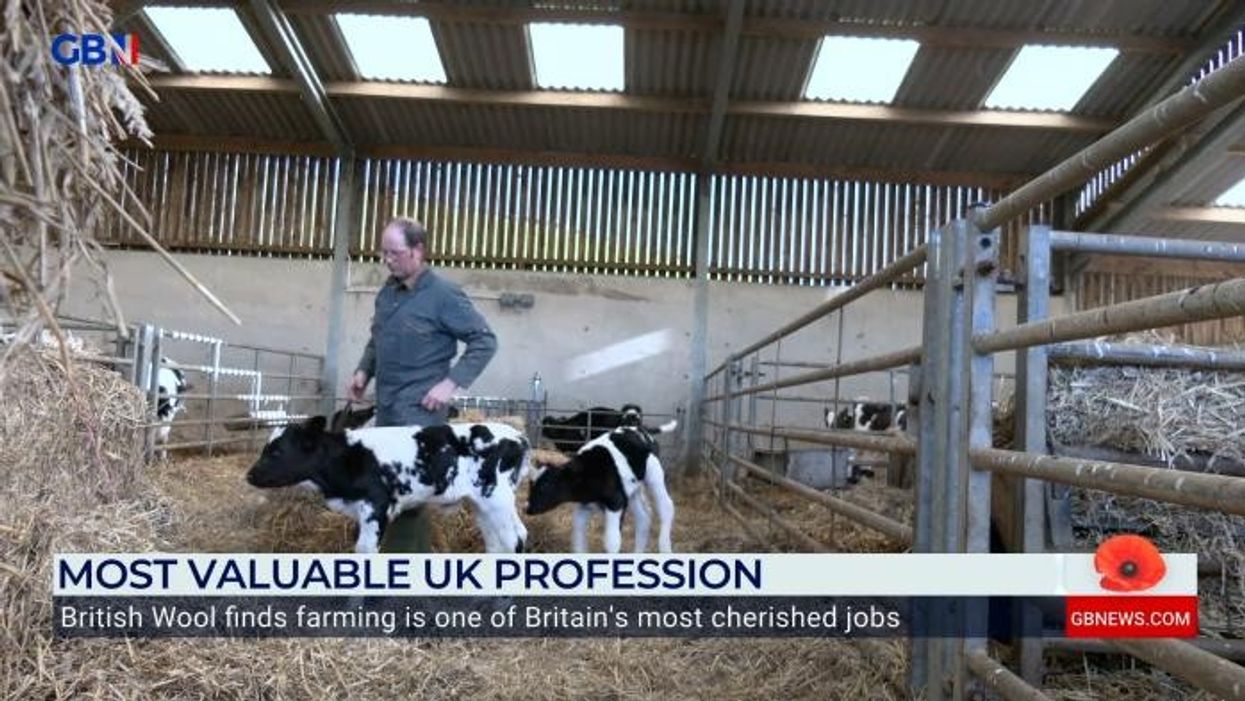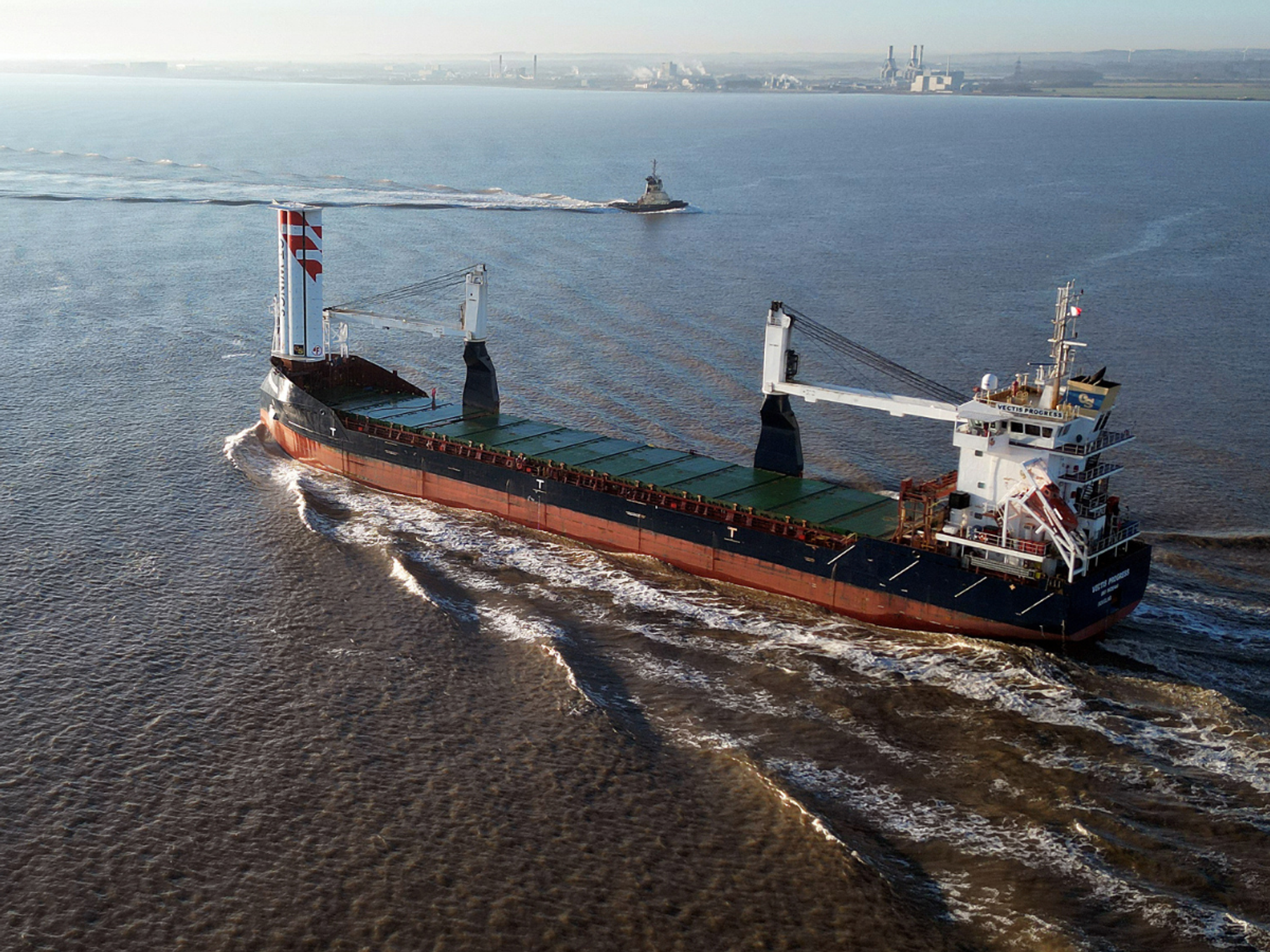Research shows farming is one Britain’s most essential vocations

By Anna Riley
Published: 07/11/2023
- 16:23Farmers are crucial in society, and despite the demanding nature of their work, British Wool found 79 per cent of farmers would still recommend their career
Don't Miss
Most Read
Latest
Farming is one Britain’s most cherished and essential vocations, according to recent research.
In the daily life of a farmer, tasks like book-keeping, handling large machinery, and ensuring animal welfare are just the tip of the iceberg.
British Wool has found that mastering these skills would take over 15 years and cost nearly £200,000, highlighting the incredible dedication of those who work the land.
For fourth generation farmer John Dawson, farming is in the blood. His family have been rearing sheep and cattle at Bleak Bank Farm in the Yorkshire Dales for more than a century.

Working 14 hours a day come rain or shine, farming is a tough but vital vocation
|GB NEWS
Working 14 hours a day come rain or shine, farming is a tough but vital vocation. John’s work in producing meat and dairy feeds the feeds and nourishes the population – and the wool from his sheep clothes us and furnishes and insulates our homes.
“The scale of what you do on a farm is terrific, from milking the cows, to helping cows give birth, to mending water pipes, to using very high tech machinery and equipment, milking parlours, tractors, a huge range of jobs,” John told GB News.
“What we do is undervalued, both in terms of looking after the environment and producing food,” said John.
“As long as food is cheap, people don’t value it, they value their mobile phones, their skiing holidays. What I want people to do is take as much value in what they buy to eat and feed their children and their families as I do in producing it.
John sells the wool from his sheep to British Wool, who represent all 35,000 sheep farmers in Britain.
He said: “The wool thing is huge for me, because it’s the ultimate recycling, we’re not going down a hole in the ground to mine it, we’re not going into the North Sea to bring it out of the sea bed, we’re not travelling abroad to get it, it comes into our yard every year, and the sheep says ‘please take it off’.
British Wool collect, grade and market British wool to the international wool textile industry to be made into flooring, furnishing, and clothing.
Kate Drury, British Wool Board Member for English Central Region, told GB News: “We’re globally unique in the UK, there’s a route to market for every sheep farmer, so anyone with wool in the UK can bring it to a depot within an hour of where they farm and it’s brought here and it’s aggregated because we have over 60 breeds, over 120 grades, so if we didn’t put it all together and put it in an amount, someone like me can’t buy it efficiently.
“Then we process it all in the UK, we’re very lucky, we’ve got two scouring plants, and for my company, we do it all in West Yorkshire and we haven’t lost any of the abilities to process any of our wools, which is not the same in other countries.
“My company wouldn’t exist if we didn’t have good sheep farmers, wool handlers, graders, combers, spinners, auctioneers. I need every single one in that supply chain to make the valuable product and so for me, that’s essential to look for the Union Jack and to then re-invest that money that everyone else has put into it.”
Laxtons is the UK’s leading specialist yarn manufacturer and buys and spins British wool in its mill for many different markets including knitwear, crafts and upholstery.
From farm to factory, Laxtons customers can learn about where the wool from their purchase came from through their Wooltrace scheme.

John’s work in producing meat and dairy feeds the feeds and nourishes the population
|GB NEWS
“It all starts at the farm, and if it wasn’t for the farmers, you wouldn’t have a product in your hand,” said James Laxton – Managing Director of Laxtons Ltd.
“Buying British supports the farming community, it supports the textile infrastructure, where we take the wool and put it into finished product.
“There’s a lot of people employed in that entire chain and the more we can support that, the bigger that can become and the more support we can give for the farming community.”
Farmers are crucial in society, and despite the demanding nature of their work, British Wool found 79 per cent of farmers would still recommend their career, underscoring their deep passion for their work.
Zoe Coates, Digital Communications Manager for British Wool, told GB News: “Farming can be a really tough job, but it’s such a rewarding job.
“One day is never the same and it’s such a varied profession that you can one day be looking after animals but the next day, you’re doing machinery or you’re doing book-keeping. That figure [79 per cent] shows farmers still want to do it and that it’s an amazing job to be doing.”
British Wool added that this passion, combined with a multitude of skills, is what enables UK farmers to produce high-quality wool for sustainable products and some of the world’s best meat.











